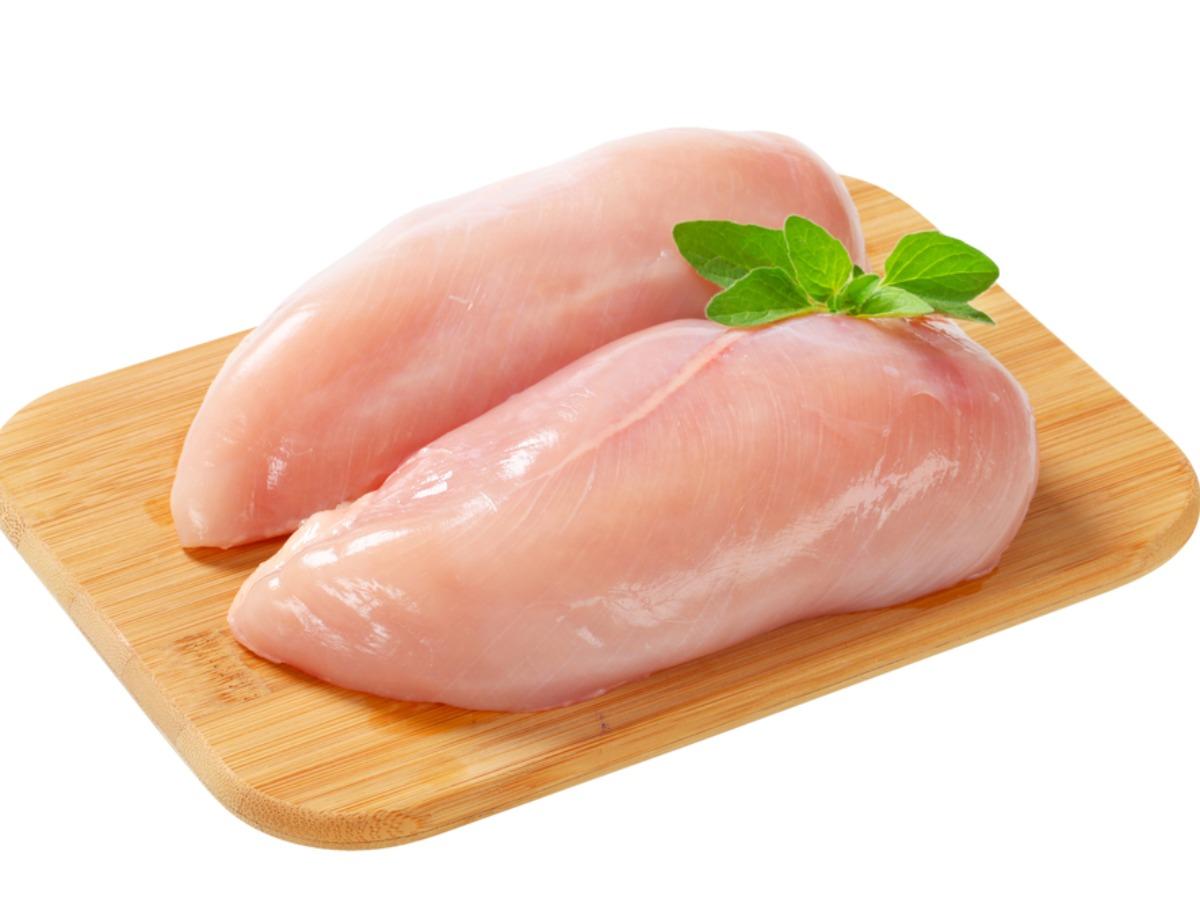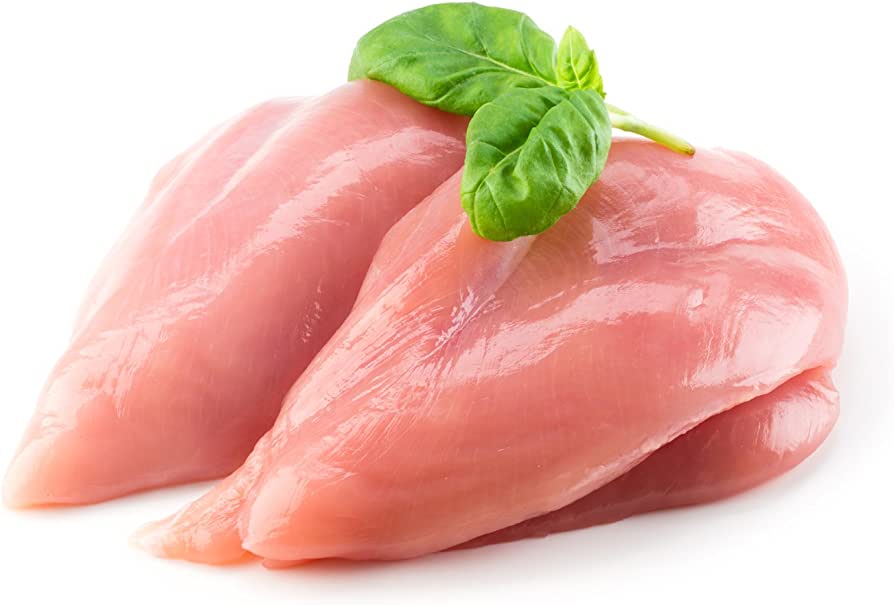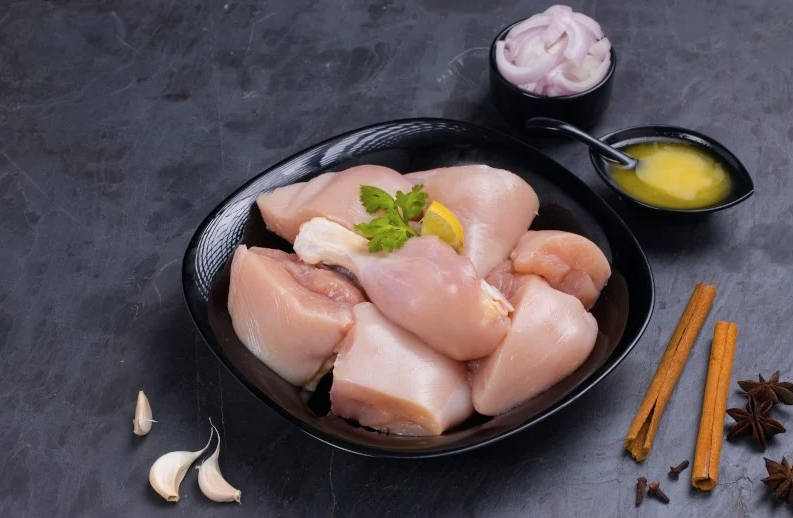Chicken breast is a popular and healthy source of protein for people around the world. It is a low-fat, low-carbohydrate food that provides a high amount of protein per 100g. Let's take a closer look at the nutrition facts of 100g of chicken breast.
How Much Protein In A Chicken Breast?

Firstly, the amount of protein in 100g of chicken breast is a crucial factor that makes it an excellent source of protein. 100g of chicken breast provides approximately 31g of protein, making it a high protein food. This amount of protein is beneficial for muscle growth and repair, making chicken breast a popular food among bodybuilders and athletes.
Apart from protein, 100g of chicken breast contains around 165 calories. This makes it a low-calorie food that is great for people who are trying to lose weight or maintain a healthy weight. Additionally, chicken breast is low in carbohydrates, providing only around 0.5g of carbs per 100g.
Chicken Breast Nutrition Facts 100g
When it comes to nutrition, chicken breast is a rich source of essential vitamins and minerals. For instance, 100g of chicken breast provides around 12% of the recommended daily intake (RDI) of vitamin B6, which is essential for the metabolism of protein. It also contains smaller amounts of other vitamins like vitamin B12, niacin, and vitamin C.
Furthermore, chicken breast is a good source of minerals like phosphorus, which is essential for bone health, and selenium, which has antioxidant properties. 100g of chicken breast also contains a small amount of iron, which is important for the formation of red blood cells.
Chicken Breast Macronutrients

In terms of macronutrients, chicken breast is relatively low in fat, providing around 3.6g of fat per 100g.It is a heart-healthy meal option because it is low in saturated fat. The amount of carbohydrates in chicken breast is minimal, providing only around 0.5g per 100g.
Chicken Nutrition Facts 100g
100g of chicken breast provides the following nutritional values:
- Calories: 165 kcal
- Protein: 31 g
- Fat: 3.6 g
- Saturated fat: 1 g
- Carbohydrates: 0.5 g
- Fibre: 0 g
- Sugar: 0 g
- Sodium: 70 mg
- Cholesterol: 85 mg
Vitamins And Minerals In Chicken Breast
In terms of vitamins and minerals, 100g of chicken breast provides:
- Vitamin B6: 12% of the recommended daily intake (RDI)
- Niacin: 25% of the RDI
- Vitamin B12: 5% of the RDI
- Phosphorus: 22% of the RDI
- Selenium: 13% of the RDI
- Iron: 3% of the RDI
It's worth noting that the nutritional values of chicken may vary depending on the cut of the meat and the cooking method used. For example, chicken thighs have slightly higher fat content than chicken breast, and fried chicken will have more calories and fat than grilled or roasted chicken. However, in general, chicken is a great source of high-quality protein and essential nutrients.
How Long Would It Take To Burn Off Chicken Breast Calories?

The number of calories burned during physical activity varies depending on various factors such as body weight, age, sex, type of exercise, intensity, and duration of exercise. However, as a rough estimate, here's how long it might take to burn off the calories in 100g of chicken breast:
Running: It would take around 15-20 minutes of running at a moderate pace (10-11 km/h) for an average person to burn off the 165 calories in 100g of chicken breast.
Cycling: Cycling at a moderate pace (16-20 km/h) for about 20-25 minutes would burn off the same amount of calories.
Swimming: Swimming at a moderate pace (50-75 m/min) for around 25-30 minutes could burn off the 165 calories in 100g of chicken breast.
Resistance Training: Weightlifting, bodyweight exercises, or other forms of resistance training can also burn calories. Depending on the intensity and duration of the workout, it may take 30-40 minutes of resistance training to burn off the calories in 100g of chicken breast.
It's important to note that these are just rough estimates, and the actual number of calories burned will vary depending on the individual and their specific circumstances. Additionally, it's not necessary to burn off every calorie consumed; a healthy and balanced diet can provide the necessary nutrients and energy for the body to function optimally.
Chicken Breast Worth Eating?
In conclusion, chicken breast is an excellent source of protein that provides a range of essential nutrients like vitamins and minerals. It is a low-fat, low-calorie food that is ideal for people who want to maintain a healthy weight or lose weight. Moreover, chicken breast is low in carbs, making it a suitable food for people following a low-carb or ketogenic diet.